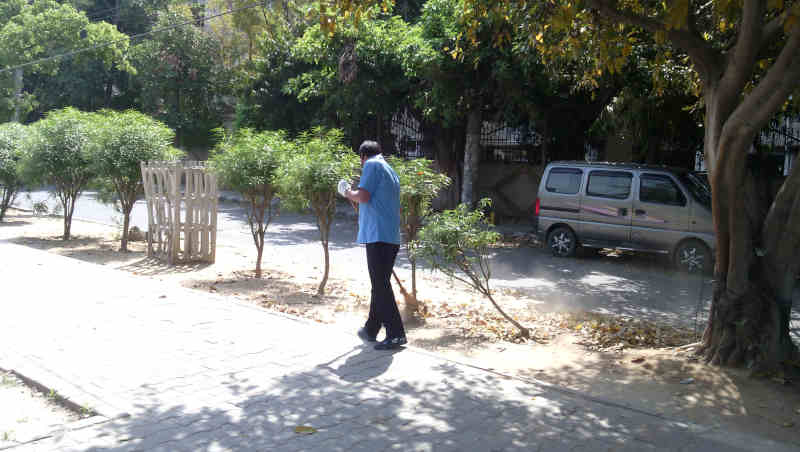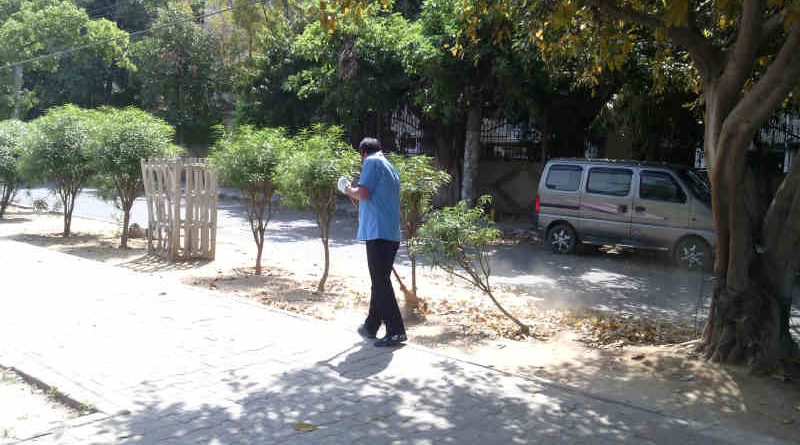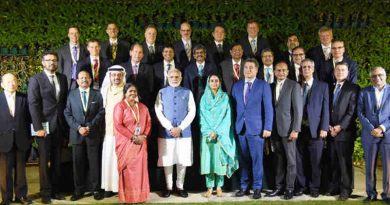Why India Can’t Use Dr Fauci’s Advice of Complete Lockdown

The current strategy of partial lockdowns in different states is not effective as it cannot stop the transmission of infection.
By Rakesh Raman
Dr Anthony S Fauci, chief medical advisor to the Biden Administration, has advised India to observe a complete lockdown for a few weeks to contain the coronavirus (Covid-19) contagion.
“No nation likes to lock itself down but an immediate shutdown for a few weeks could put an end to the cycle of transmission in India,” Dr Fauci said.
Fauci – who has worked with seven U.S. Presidents, spoke to The Indian Express on Friday (April 30) from the National Institute of Health (NIH) in Bethesda, Maryland.
While Fauci has suggested lockdown, his advice cannot be implemented in India – mainly because India is a poor and underdeveloped country where an estimated 90% people are uneducated.
Fauci is not aware of the fact that in India most politicians – including PM Narendra Modi – are so illiterate that they hold crowded public rallies after ostensibly asking people to stay at home and observe safe distance.
Ironically, Modi and other politicians also wear face masks in virtual online interactions and remove their masks when they appear in crowded physical meetings.
Even when the government imposes a lockdown, the enforcement is so weak that people ignore government’s orders and keep roaming in the streets without observing safe-distancing guidelines and without wearing face masks.
Obviously, Fauci’s crude advice for lockdown cannot be implemented in India. He also emphasized that the immediate need of the infected people of India is hospitals, oxygen, and essential medical care, while the Indian government is trying to focus on vaccination, although there is an acute shortage of vaccines.
Fauci said that building healthcare infrastructure during the lockdown period is more important than vaccination because vaccination will have its impact after a few weeks. Moreover, India’s vaccination work is so slow that only 2% of the people have been vaccinated during the past couple of months while Covid infection is spreading rapidly across the country.
He gave the example of China which quickly built makeshift hospitals to take care of people and suggested India to focus on hospitals and medical care.
Fauci added in his advice that the Indian government should immediately arrange oxygen for Covid patients and give medical support, personal protective equipment, and other necessary assistance to hospitals while implementing a total lockdown for a few weeks in the entire country.
Obviously, the current strategy of partial lockdowns in different states is not effective as it cannot stop the transmission of infection. In fact, lockdown in any form cannot be a viable option in India where millions of people are homeless.
An estimated 400 million people live in very small rooms in Indian slums usually called Jhughi Jhopri colonies (or J.J. colonies). In these colonies, a family of 4 to 8 family members lives in one room of about 25 sq. meters.
Moreover, multiple families share one toilet which does not have water and most can’t even afford soap to wash their hands which is required to stay safe from coronavirus. Obviously, there is a very high probability of coronavirus contagion.
As the density of population is extremely high in these colonies, the infection will quickly spread in the entire locality. It is not possible to observe social distancing in these poor localities.
These people contact a number of other people outside their colonies as the lockdown restrictions are not applicable to people who go from one place to another for buying essential commodities, such as grocery and food items.
Plus, there are hundreds of thousands of workers who are commuting freely to make and deliver essential products and services. For example, if people are getting milk and bread in their homes everyday, there are workers in the factories who are working daily to produce milk and bread – and hundreds of other such products.
And then they deliver these products at millions of shops that open everyday to sell these products. People frequently touch the items delivered by others who may have coronavirus infection. Simply put, you cannot avoid this type of physical contact with each other.
Therefore, it is impossible to follow social distancing and impossible to avoid contact even during the lockdowns. And when millions of people do not have soap and water in their homes, the lockdown and community curfew cannot succeed in containing the virus which will spread rapidly in the absence of hospitals to treat the patients.
Therefore, Dr Fauci’s lockdown advice is invalid for India.
Although the Indian government is not releasing the actual data about Covid infections, deaths, and vaccination, estimates suggest that nearly half of India’s population of 1.4 billion is infected.
The virus will cause more damage in the coming months, as multiple virus variants are emerging and the healthcare system of India will further collapse.
By Rakesh Raman, who is a national award-winning journalist and social activist. He is the founder of a humanitarian organization RMN Foundation which is working in diverse areas to help the disadvantaged and distressed people in the society.




